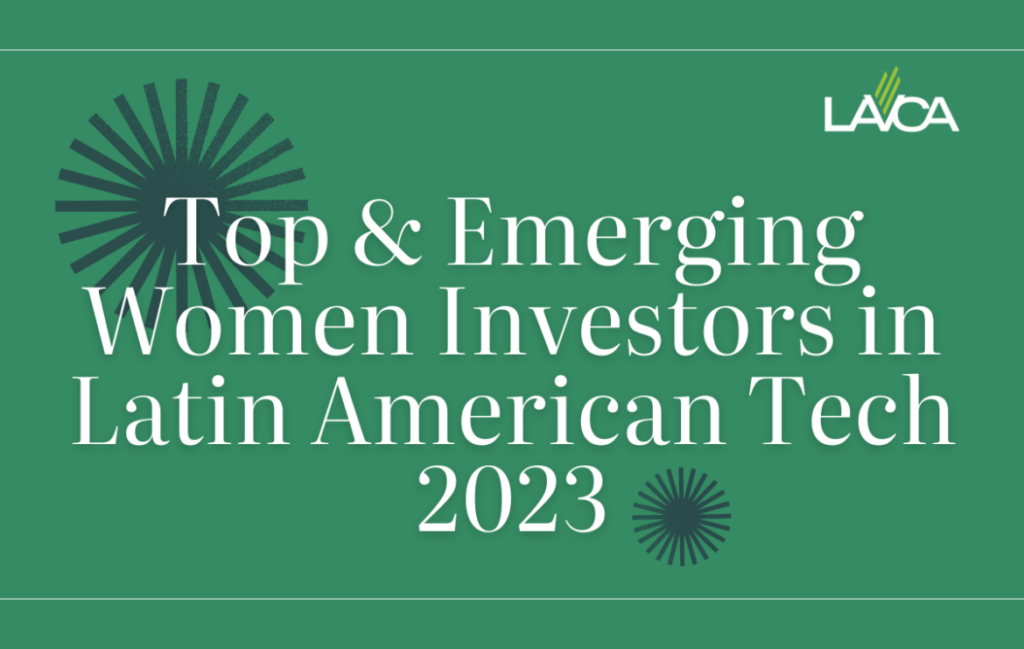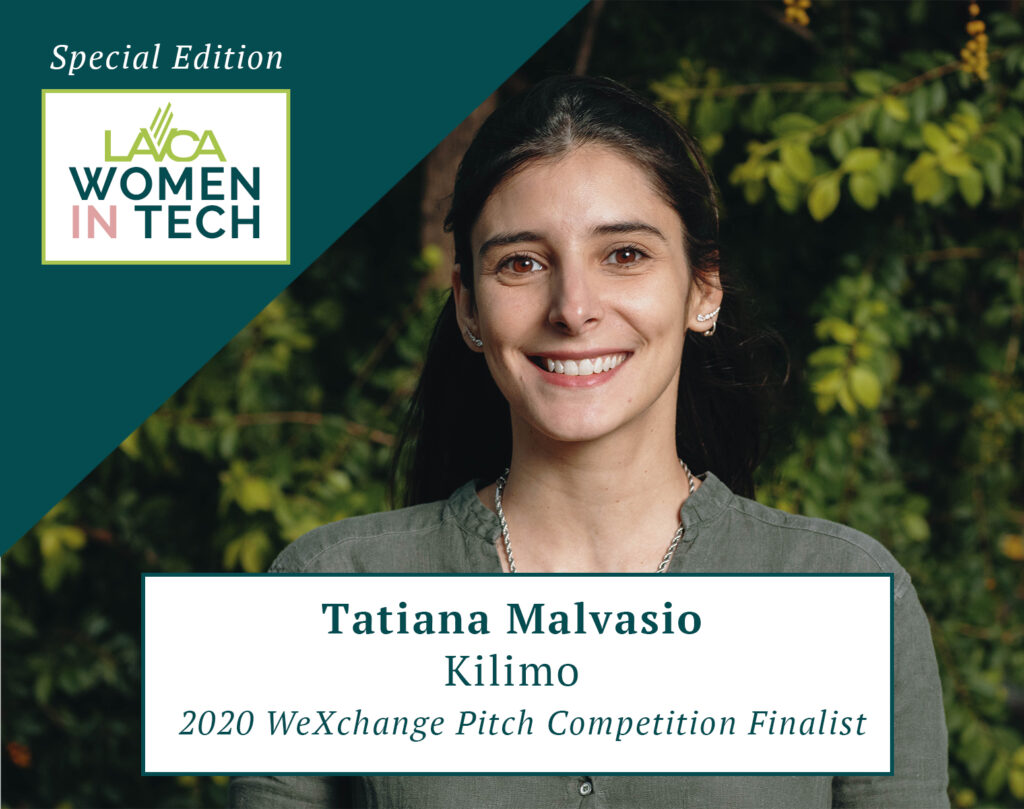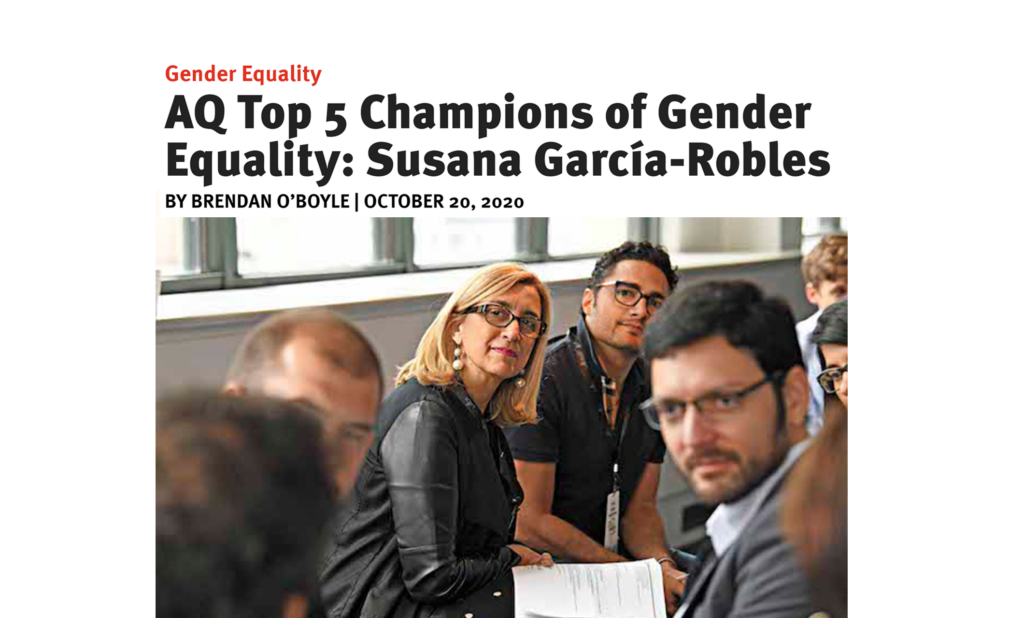Gender Diversity
Chile’s Lab4U Talks Winning WeXchange and the US$37.8b Edtech Opportunity
28 November 2017

Company: Lab4U
CEO and Co-Founder: Komal Dadlani,
Investors: Dr. Pablo Valenzuela, Alan Farcas, Susom Gosh, Reach Capital, NXTP Labs, Tribal Planet, Socialab, New School Venture Fund
Komal Dadlani founded Lab4U in Chile in 2013 to disrupt the way science is taught in classrooms across Latin America and the world. Harnessing the power of smartphones, Dadlani and her team use built in sensors to create hands on science labs and curriculum.
In this interview, Komal Dadlani talks about the US$37.8b edtech market and how she benefited from both local government funding in Chile (from Startup Chile and CORFO) and how winning WeXchange in 2016 helped better connect her with the investment community in the region and the Bay Area.
LAVCA: Please summarize your business.
Komal Dadlani: At Lab4U we are democratizing science. We are changing the way science is taught by transforming smartphones and tablets into complete science labs allowing students to perform engaging experiments based on real-life examples in real time. Lab4U helps students connect theories with the phenomenon around them.
Smartphones and tablets have several built-in sensors (accelerometers, sonometer, and a camera) that are normally used for games and navigation. At Lab4U we use these sensors to create hands-on science experiments. One of our products, Lab4Physics uses the sensors to easily measure, graph, and analyze the changes in physical properties. Students build simple setups (such as a pendulum with a piece of yarn and a plastic bag), they hypothesize, measure, graph, and compare their own results with their peers supporting peer-to-peer learning. Lab4Physics’ pre-designed experiments are also aligned to the national curriculum. Simultaneously, the teacher portal contains short tutorial videos, teacher’s instructions, lab reports, handouts, and ideas on how to incorporate inquiry-based learning.
Lab4U started in Chile four years ago and today the first product, Lab4Physics, is being used in is every continent impacting more than 10,000 students. Pre and post test results show that students increase their academic performance up to 40% (n=2,000). In addition, Lab4U has successfully implemented in Chile, México, and the US. Lab4U is changing the paradigm of science education by transforming a ubiquitous technology into an empowering scientific instrument.
Science Education is expensive mainly because it requires lab infrastructure that most schools worldwide can’t afford. Teachers don’t have the right tools to teach and students end up with a low-scientific literacy index. Moreover, in the US 48 states need to follow Standard High School Graduation Requirements, where in order to get a diploma students need to go through an AP course. In Latin America, 88% of schools don’t have any lab equipment and teachers need help. Lab4U comes as a low-cost innovative solution for science education.
Mobile learning was a US$5.3 billion market in 2012 and by 2020 it is forecasted to be US$37.8 billion globally. Customers are K-12 schools and universities.
Mobile learning was a US$5.3 billion market in 2012 and by 2020 it is forecasted to be US$37.8 billion globally.
LAVCA: What is your background and the background of Lab4U’s other co-founders? How did you end up working together?
Komal Dadlani: In 2013 I was a biochemistry student from Universidad de Chile. I met Alvaro Peralta in the engineering faculty during a startup weekend activity in which we pitched our problems in science education. Alvaro identified with this issue because in Colombia he faced the same problem. Together we came up with Lab4U and we have been working together ever since.
LAVCA: What other technologies exist to fill this need?
Komal Dadlani: Within the existing solutions we traditionally see those that develop educational science content, student-teacher interactive platforms, and separately lab equipment (sensors). Therefore schools or students have to incur extra costs to purchase external sensors. The user experience is complex and the technology is difficult to use . On the other hand, you have virtual labs such as Late Nite Labs acquired by Macmillans and Labster that just raised US$10m as a developer of VR based experiments for education.
LAVCA: Why is Chile a good market for an edtech company?
Komal Dadlani: The edtech market in Chile is still evolving and quite underdeveloped compared to the United States. Not all classrooms have connectivity or broadband connection making it hard for teachers to decide whether they should use a tech product or not. One thing that is not a barrier is the lack of tablets and smartphones. Chile has a high mobile penetration. The problem is typically poor teacher training programs, we still see that teachers need a lot of help in order to implement or use a STEM product in their classrooms.
The tech scene in general in Chile is quite developed compared to other countries in Latin America, there is a great startup ecosystem that continues to grow. Nevertheless, there is a big divide in Science Education. There is a lot of work to be done.
LAVCA: What financing have you received thus far? From whom and at what point? What resources have you used in your search for financing? Are you currently looking for additional financing?
Komal Dadlani: As a Chilean startup, we were lucky to receive support from Startup Chile in 2013 and the government agency CORFO has been a great partner and funder for us in the very early stages. Once we started growing we looked for like-minded angel investors who believed in our mission and funds like NXTP Labs who is one of the most active early-stage investor in Latin America.
In Chile our biggest funder is still CORFO, they have some great grants for product development, which helps to get started, but there is not a lot of access to growth capital, so we are looking to other more developed investment ecosystems like Mexico or the US when it comes to later stage capital.
We are not currently looking for private funding, but we have plans to secure our next financing round by the end of 2018.
LAVCA: How have you/do you plan to use the financing? In general, how do you plan to grow the business?
Komal Dadlani: The financing goes toward new product development,. We are currently working on our second product, Lab4Chemistry, and business development with buyers and decision makers in the education space.
LAVCA: Outside of the financial benefits of working with an investor, how have your investors contributed to Lab4U’s operations, strategies, etc.?
Komal Dadlani: Our angel investors have been great advisors and supporters of the mission and the Lab4U team. It’s like having an emotional safety net that supports founders in that roller-coaster ride called entrepreneurship. The network that VC funds have open many doors.
It’s like having an emotional safety net that supports founders in that roller-coaster ride called entrepreneurship. The network that VC funds have open many doors.
LAVCA: What has been the biggest challenge for Lab4U?
Komal Dadlani: Fundraising has actually been the least challenging aspect in our experience. Satisfying your client needs, product development, talent acquisition, cash-flow management, sales, marketing. Running a startup is just so much work.
One of our challenges has been developing an edtech product in a region like LatAm that needs to work on its basic infrastructure in public schools. Schools don’t have wifi, some teachers who have tablets and smartphones have never actually entered Google Play or the App Store on their own.
When we speak about connectivity, even in the US, if you analyze the trends from 2017: “Nearly all schools are connected, but bandwidth is lagging. While more than 94% of schools are connected to the internet, only 22% of them have enough bandwidth to handle the streaming demands of 1:1 learning” (https://www.edsurge.com/news/2017-11-17-spotting-the-2017-trends-that-fuel-edtech-innovation-and-investments) Or look at the big investment done by AltSchool, where its closing two great innovative schools (https://techcrunch.com/2017/11/22/altschool-wants-to-change-how-kids-learn-but-fears-that-its-failing-students-are-surfacing/)
Disrupting the education industry is a big challenge perse. You are not developing a game like Pokemon Go where if it fails it doesn’t matter, you are working with students and teachers. Governments that are investing for the improvement in learning outcomes and better quality education. That’s a huge challenge.
LAVCA: Lab4U won the WeXchange competition in November 2016. How did this help advance the business?
Komal Dadlani: Winning WeXchange gave us great exposure in the LatAm funding scene and those connections helped us within the Bay Area. The IADB connected us to Puente Labs who is very well connected in the Bay Area, these are connections that will be key for our next funding round. It has also been a kind of “badge” for intros when meeting key partners. Being able to say we wonWeXchange helps to call someone’s attention and lends us credability. In a fast moving and overwhelming digital world, it helps to get noticed.
Winning WeXchange gave us great exposure in the LatAm funding scene and those connections helped us within the Bay Area.
LAVCA: What specific challenges do you face being a Woman entrepreneur in Latin America?
Komal Dadlani: Most of my investors are men and they have been excellent advisors and mentors, so with them I haven’t faced any challenges, they have been great and I am lucky. However, within my field when I go to events my own peers or fellow entrepreneurs, same age and/or startup stage, have ignored me until someone jumps in and says “Hey you are one of the founders of Lab4U, I have heard you have done well and raised X money”. I have experienced a dominant boys club in my industry, but I continue to work hard to give my best. I have a great team and investors who I want to make proud.
LAVCA: Do you have any advice for women hoping to create and grow a business in Latin America?
Komal Dadlani: Get as much as equity-free support as you can from Government Agencies or grants when you are starting and once you have matured your concept, product and business, seek private funding.
Get mentors and advisors early on, someone who believes in what you are doing and can support you throughout your journey.
Stay strong and have faith, everything takes more time.
You may be interested in...
-

Top & Emerging Women Investors in Latin American Tech 2023
View LAVCA’s list of Top Women Investing In Latin American Tech. Women in venture...
-

Satellite Analytics & Irrigation Systems: Interview with Kilimo COO Tatiana Malvasio
Company: Kilimo Investors: NXTP Ventures, Alaya Capital, The Yield Lab, Xpand...
-

Maria Pia Iannariello, MGM Innova Capital
LAVCA recently spoke with Maria Pia Iannariello, Co-Founder & COO of MGM Innova Capital,...
-

AQ Top 5 Champions of Gender Equality: Susana García-Robles
♀️ READ Americas Quarterly article Top 5 Champions of Gender Equality,...